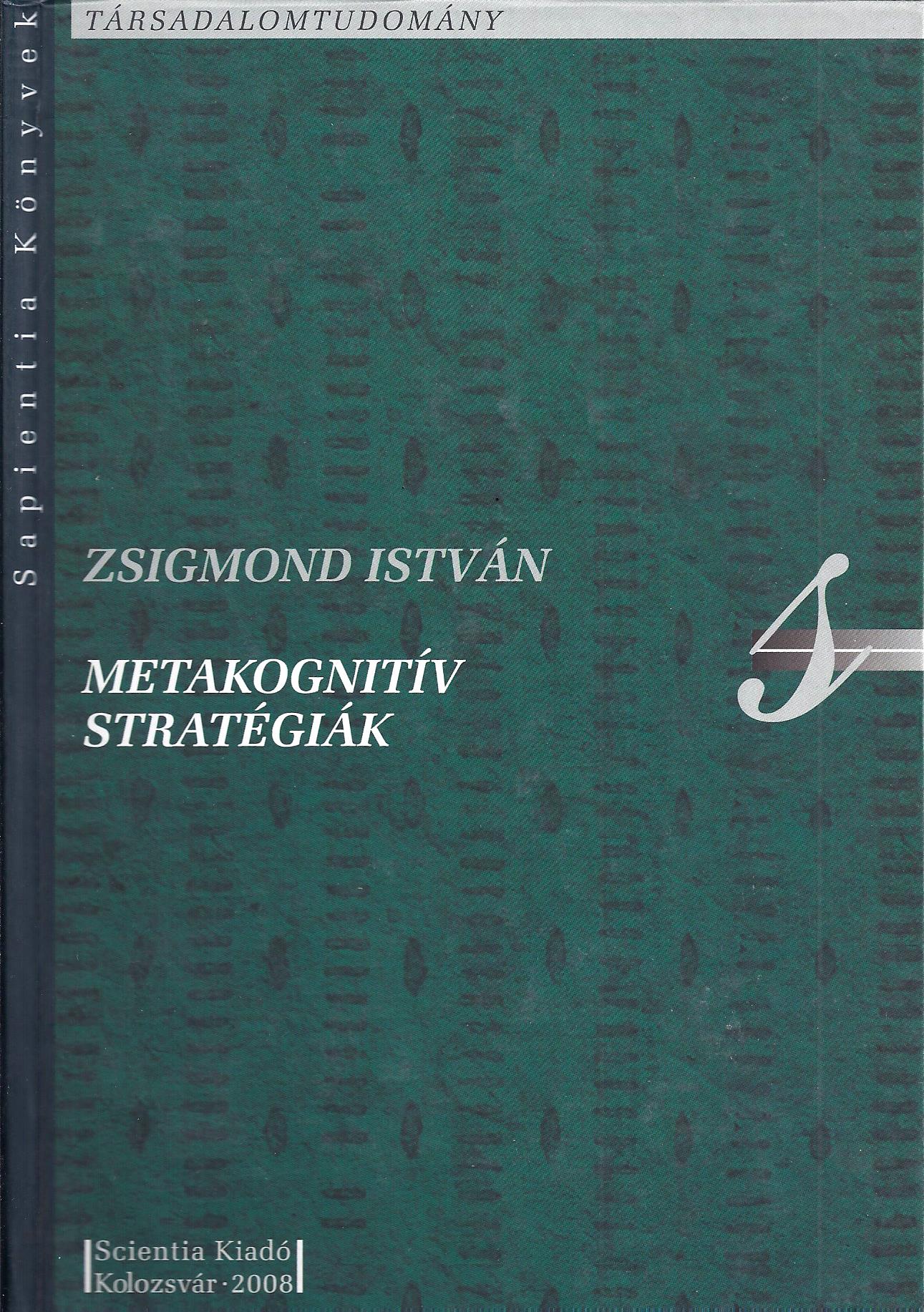METAKOGNITÍV STRATÉGIÁK ─ ÖSSZETEVŐIK ÉS MÉRÉSÜK
Metacognitive Strategies ─ Components and Measurement
Author(s): István Zsigmond
Subject(s): Educational Psychology, Cognitive Psychology
Published by: Scientia Kiadó
Keywords: metacognitive strategies; metamemory processes; problem-solving processes; declarative knowledge; conditional knowledge; procedural knowledge; QMSR;
Summary/Abstract: Researching metacognitive strategies has become important for scientists since Flawell (1971) argued for the crucial role of metamemory processes in the development of memory. The number of scientific publications on metacognition is growing every year. However, some aspects regarding the concept of metacognition are still ambiguous. Main theories regarding metacognitive processes and their complementarity are presented. The elaboration procedure of Integrative Model of Metacognition(IMM) is presented, which is based on the complementarity of former models and their inclusion in theories about problem solving. A principle characteristic of IMM is the possibility to make a clear distinction of metacognitive and cognitive processes, offering an answer to critics regarding the concept of metacognition. The IMM makes apparent that metacognitive strategies are those elements that regulate other problem-solving processes, and a strategy becomes metacognitive when its conditional knowledge-components are connected to situations when we don't understand something. The model incorporates the majority of concepts related to metacognition (metacognitive monitoring and regulation, metamemory, metaknowledge, etc.), and makes possible to include any metacognitive process in problem-solving. The IMM offers a starting point for elaborating measurement instruments of metacognitive processes. It points out what kind of knowledge and procedures are necessary for developing functional metacognitive strategies. When analysing the reading process with the MIM model, we can find out what are the difficulties for learning and utilizing comprehension strategies. We present the process of elaborating the Questionnaire of Metacognitive Strategies in Reading (QMSR), which makes possible evaluating the knowledge-components of four basic reading comprehension strategies: resuming, selecting important information, addressing questions and re-reading. QMSR measures the following aspects of these strategies: declarative knowledge necessary for utilizing these strategies and conditional knowledge ─ when and why to utilize these strategies, and procedural knowledge ─ the ability of utilizing the strategies. We administered the QMSR to three groups of children (504 pupils in total):third grade (N = 243), fourth grade (N = 189) and seventh grade (N = 72) from 10 schools. According to statistical analysis reliability, content and constructive validity of QMSR are acceptable. Predictive validity could not be calculated because lack of acceptable criteria. When utilizing alternative criteria we have found acceptable predictive validity of QMSR.
Series: Sapientia Könyvek
- Print-ISBN-13: 978-973-1970-02-8
- Page Count: 144
- Publication Year: 2008
- Language: Hungarian
- eBook-PDF
- Table of Content
- Sample-PDF
- Introduction

